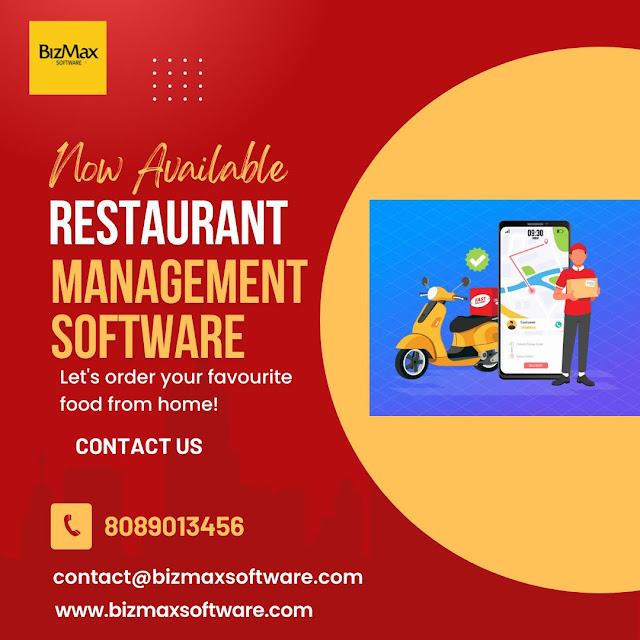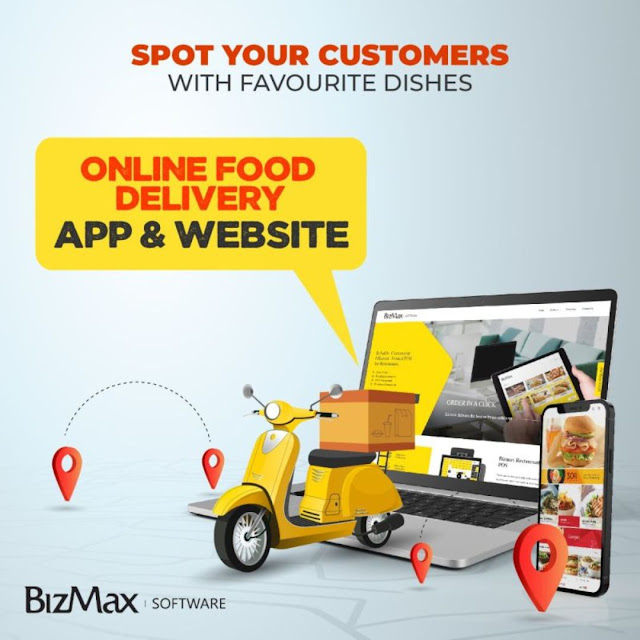Restaurant Management System: Streamlining Operations for Success
The restaurant industry is known for its fast-paced and dynamic nature,
and effective management is crucial for success. With the advent of technology,
restaurants now have the opportunity to streamline their operations and enhance
customer service through the use of a restaurant management
system. In this article, we will explore the benefits, features, and best
practices associated with implementing a restaurant management system. We will also
provide insights into choosing the right system and share a success story to
illustrate its positive impact.
Benefits
of a Restaurant Management Software
Streamlined
Operations
Managing a restaurant involves juggling numerous tasks, such as order
taking, table management, inventory tracking, and staff coordination. A
restaurant management system can streamline these operations by automating
processes and reducing manual effort. By centralizing data and facilitating
efficient communication between departments, a management system ensures smooth
workflows, minimizing errors and delays.
Efficient
Order Management
Taking orders accurately and efficiently is vital for customer
satisfaction. With a restaurant management system, orders can be seamlessly
transmitted from the dining area to the kitchen, reducing the chances of
miscommunication or errors. This results in faster order processing, improved
order accuracy, and ultimately, happier customers.
Inventory
Management
Keeping track of inventory levels and ingredients is essential for
managing costs and ensuring optimal stock levels. A restaurant POS system
can automate inventory tracking, providing real-time updates on ingredient
usage, stock availability, and reorder points. This enables restaurants to
optimize their inventory management, reduce wastage, and avoid stockouts.
Enhanced
Customer Service
In today's competitive market, providing exceptional customer service is
a differentiating factor. A restaurant management system enables staff to
access customer information, preferences, and order history, allowing
personalized service. Additionally, features like table reservation management
and waitlist tracking optimize seating arrangements, minimizing customer wait
times.
Accurate
Reporting and Analytics
Data is a valuable asset in the restaurant industry, and a management
system can provide comprehensive reporting and analytics capabilities. By
generating reports on sales, revenue, customer trends, and inventory usage,
restaurant owners and managers gain valuable insights to make informed business
decisions. These insights can drive operational improvements, menu adjustments,
and marketing strategies.
Features
of a Restaurant Management System
A robust restaurant management system encompasses several essential
features that empower restaurants to operate efficiently. Let's explore some of
these key features:
Table
Reservation and Management
Efficiently managing table reservations is crucial for optimizing
seating capacity and enhancing customer experience. A management system can automate
table reservation and management, allowing customers to reserve tables online
or via phone, and staff to view and manage reservations in real-time. Features
such as waitlist tracking and table status updates enable staff to optimize
seating arrangements, reducing wait times and improving the dining experience.
Menu
Management
Managing a restaurant menu involves updating item availability, changing
prices, and adding new dishes. A management system can simplify menu management
by allowing owners and managers to make changes and updates easily. Menu items
can be grouped into categories and subcategories, and ingredients can be linked
to menu items for inventory tracking.
Order
Taking and Processing
Order taking and processing is a critical component of restaurant
operations. With a
restaurant management system, orders can be taken via POS terminals,
tablets, or mobile devices, and transmitted to the kitchen automatically. This
ensures accurate order processing, reduces wait times, and improves customer
satisfaction.
Inventory
Tracking
Inventory tracking is essential for managing costs and ensuring optimal
stock levels. A management system can automate inventory tracking, providing
real-time updates on ingredient usage, stock availability, and reorder points.
Features like inventory alerts and stock level tracking enable owners and
managers to optimize inventory management and reduce wastage.
Staff
Management
Managing staff is a crucial component of restaurant operations. A management
system can simplify staff management by providing scheduling tools, task
management, and performance tracking. Features like shift swapping,
clock-in/clock-out, and payroll processing enable owners and managers to manage
staff efficiently.
Billing and
Payment Processing
Billing and payment processing involve collecting payment from customers
and generating bills for orders. A restaurant
billing software can automate billing and payment processing, reducing
manual effort and improving accuracy. Features like split bill management and
integrated payment processing make the payment process seamless and efficient.
For more details...


.jpg)
.jpg)
Comments
Post a Comment